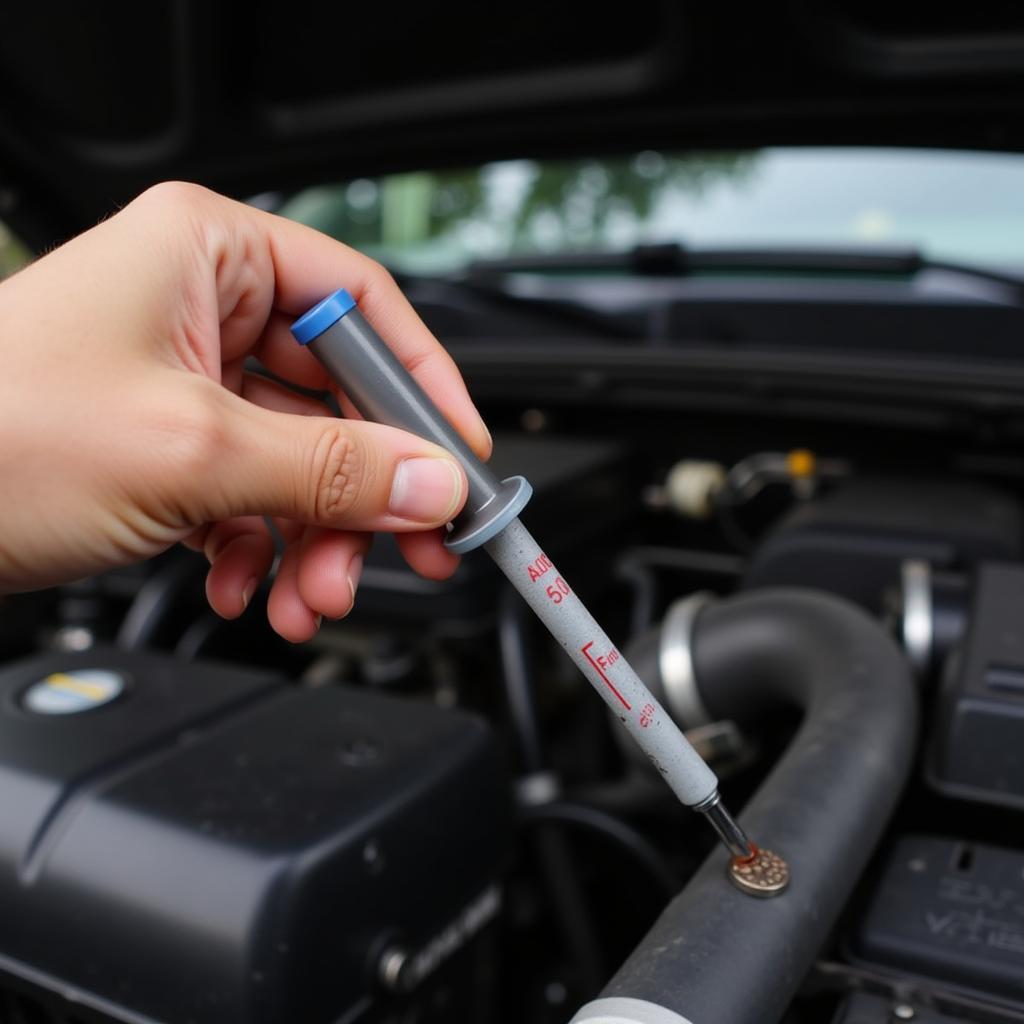Understanding the Value Of Cars With Engine Problems is crucial whether you’re selling, buying, or simply assessing your vehicle’s worth. Engine troubles can significantly impact a car’s resale value, and knowing how to navigate this situation can save you money and hassle. This article provides a comprehensive guide to evaluating the value of cars with engine problems, covering everything from identifying the problem to negotiating a fair price. We’ll equip you with the knowledge you need to make informed decisions about your vehicle.
Engine issues are unfortunately a common occurrence, and determining the remaining value of a vehicle with such problems can be complex. The severity of the issue, the make and model of the car, and the overall condition of the vehicle all play significant roles in determining its worth. After diagnosing the engine problem, you can start exploring your options. You could choose to repair the engine and restore the car’s value, or you might consider selling the car as-is. If selling is the route you choose, it’s important to be transparent about the engine issues to potential buyers.
Understanding the Impact of Engine Problems on Car Value
The type and severity of the engine problem have a direct impact on a car’s value. A minor issue, like a faulty sensor, might only slightly decrease the value, while major damage, such as a cracked engine block, can drastically reduce it. It’s essential to have a mechanic thoroughly inspect the engine to determine the extent of the damage and provide an estimated repair cost. This information will be critical in assessing the car’s value. For example, problems with water damaged cars can have devastating effects on an engine and severely impact its value.
How to Determine the Extent of Engine Damage
Accurately assessing engine damage often requires a trained mechanic. However, certain signs can indicate the severity of the problem. Loud knocking noises, excessive smoke, and decreased performance are all red flags. A professional diagnosis is essential for a precise evaluation and repair estimate.
Exploring Your Options: Repair vs. Sell
Once you understand the extent of the engine problem, you can decide whether to repair it or sell the car as-is. Repairing the engine can restore the car’s value, but it can be costly. Selling the car as-is might be a quicker option, but you’ll likely receive a lower price. Weighing the repair costs against the potential resale value after repair is crucial for making the best decision. You might even consider selling your car online, as platforms offer various options for selling vehicles with issues. Check out the best way to sell a car online with engine problems for more information.
Calculating the Value of Cars with Engine Problems
Several online tools and resources can help you estimate the value of your car, even with engine problems. These resources often consider the make, model, mileage, and condition of the vehicle, as well as the specific engine problem. Remember, these are just estimates, and the actual value may vary. Consulting with a qualified mechanic and an experienced appraiser can provide a more accurate assessment.
“When dealing with engine problems, transparency is key,” advises John Smith, a seasoned automotive technician at Smith Auto Repair. “Clearly disclosing the issue to potential buyers builds trust and helps ensure a smooth transaction.” It’s important to remember that hiding engine problems can lead to legal issues down the road.
Negotiating a Fair Price for a Car with Engine Problems
When selling a car with engine problems, be prepared to negotiate. Buyers will likely offer a lower price than for a comparable vehicle without engine issues. Researching the market value of similar cars with similar problems can help you establish a reasonable asking price and negotiate effectively. You can even find some humor in the situation by checking out the spongebob car problems meme. Sometimes a little humor can lighten the mood during a stressful car sale.
What to Disclose When Selling a Car with Engine Problems
Full disclosure is paramount when selling a car with engine problems. Provide potential buyers with all the information you have about the issue, including the mechanic’s diagnosis and repair estimate. Honesty and transparency will help you avoid potential disputes and build a positive reputation.
Jane Doe, an automotive expert at Doe’s Auto Appraisals, emphasizes the importance of documentation. “Providing potential buyers with a comprehensive history of the vehicle, including maintenance records and repair invoices, can significantly increase their confidence and potentially justify a higher selling price.”
Conclusion: Navigating the Challenges of Engine Problems
Determining the value of cars with engine problems requires careful consideration of various factors, including the severity of the issue, the car’s overall condition, and the repair costs. Whether you choose to repair the engine or sell the car as-is, having a thorough understanding of these factors will empower you to make informed decisions. Contact us at AutoTipPro at +1 (641) 206-8880 or visit our office at 500 N St Mary’s St, San Antonio, TX 78205, United States, for expert advice and assistance. We’re here to help you navigate the challenges of engine problems and get the best possible outcome for your vehicle. Have you experienced issues with automating export cars for beamng? Check out information on proformance problems with automation export cars to beamng. Also, if you’re considering buying a new car with discounts, be aware of potential issues – learn more about discounted new cars com problems.






Leave a Reply